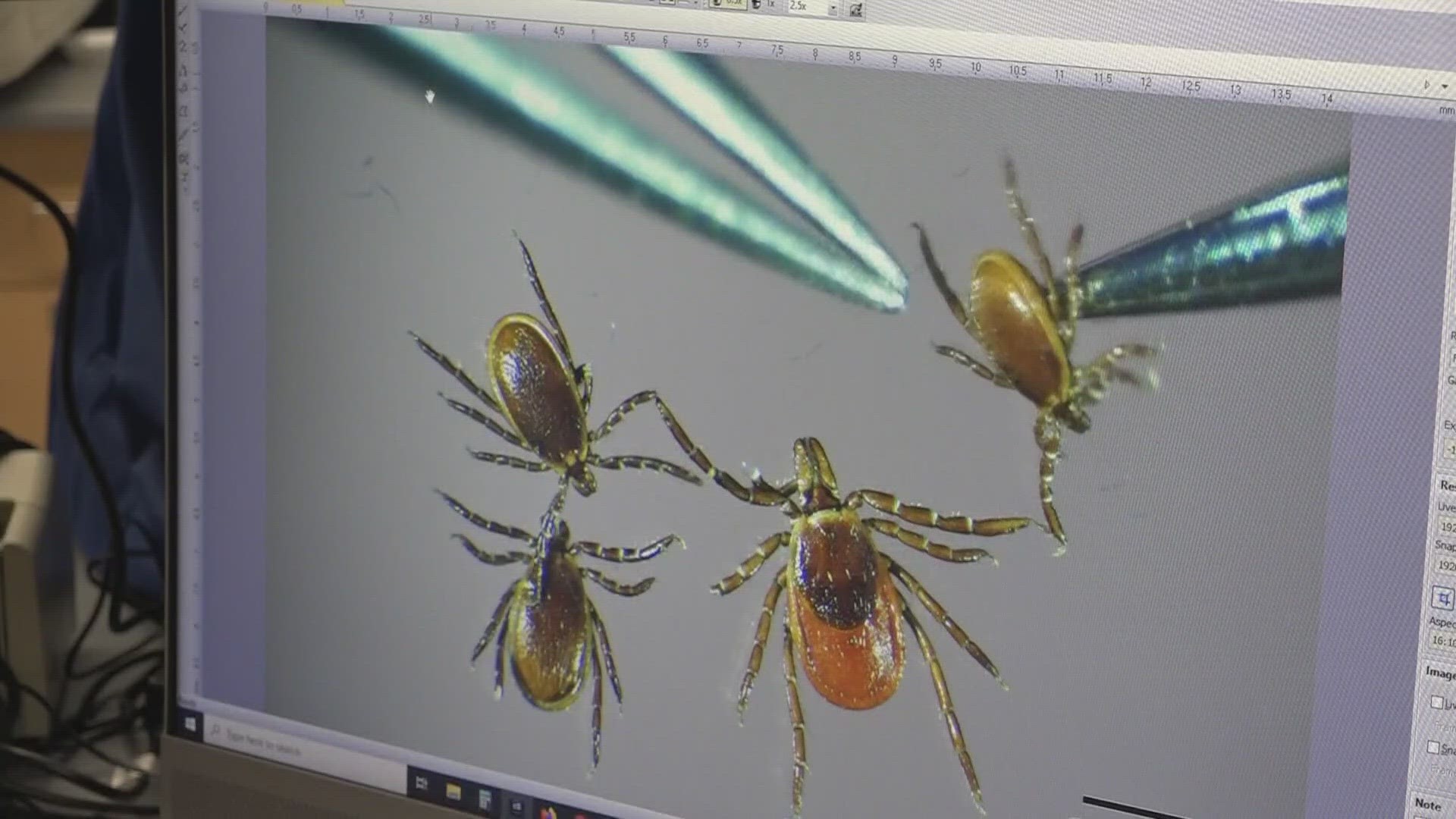MAINE, Maine — While we're about to begin the winter season, Maine state officials say you still need to be on the lookout for deer ticks.
The black-legged deer ticks that spread Lyme disease are active during the cold winter months, so the Maine Center for Disease Control and Prevention wants to remind everyone not to let their guard down.
Maine has already had a record number of Lyme disease cases this year, with 2,706 Mainers testing positive for the disease as of late last week.
The Maine CDC also reported a record five cases of Powassan in 2023, and Maine had the first fatal case of Powassan virus in the United States, with the victim Bob Weymouth, who died this past May.
If you are going to be outdoors and near wooded areas, consider the following:
- Try to wear light colored clothing to quickly spot ticks
- Wear long-sleeved shirts and pants
- Use an EPA-approved tick repellent, and spray it evenly onto your winter clothes
- Check for ticks frequently during and after any outdoor activity, including other family members, and pets
- Remove your clothing and put them in the dryer when you get home, before washing it, to kill any crawling ticks
"We know that deer ticks specifically tend to like areas that are forested, where there's a lot of shrubs and leaf litter on the ground, where the animals that they feed on can live. So especially if you are going to a place that has lots of leaf litter on the ground, that has long grass or shrubs and leafy trees, you should especially start thinking, 'Hey, I might be putting myself in deer tick habitat," Maine CDC public health educator Megan Porter said.
Porter says it's important not to panic if you do happen to get bit by a tick. She recommends you use tweezers to remove it, then sanitize the area with alcohol. You can save the tick and send it to the University of Maine tick lab for testing.
Then monitor yourself for symptoms like joint and muscle paint, fatigue, chills, and fever. If you have any symptoms or a bullseye rash anywhere in your body, immediately contact your health care provider.
Another reminder from the Maine CDC is that deer ticks can also spread the germs that cause anaplasmosis, babesiosis, Powassan, and hard tick relapsing fever.
To learn more about click here.

